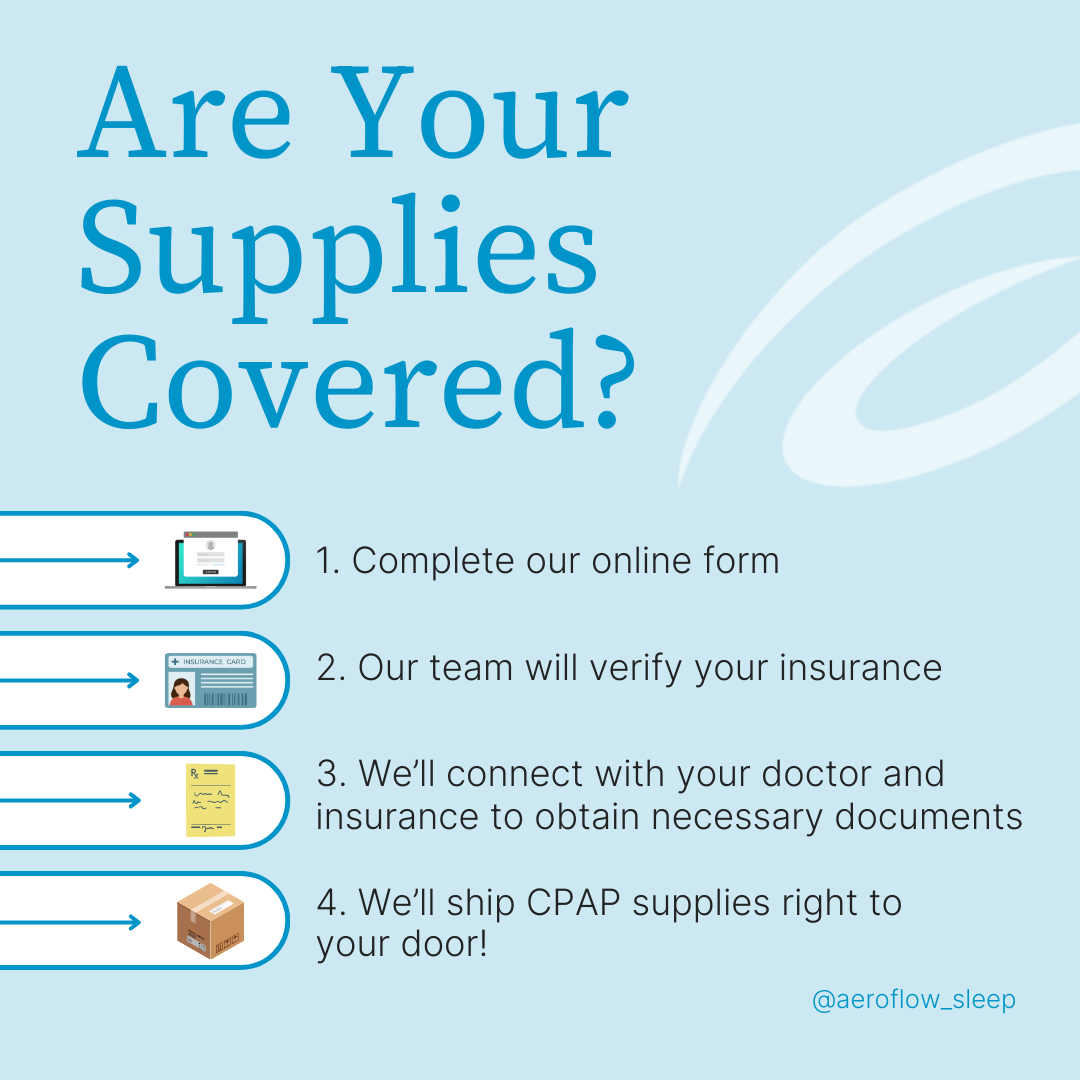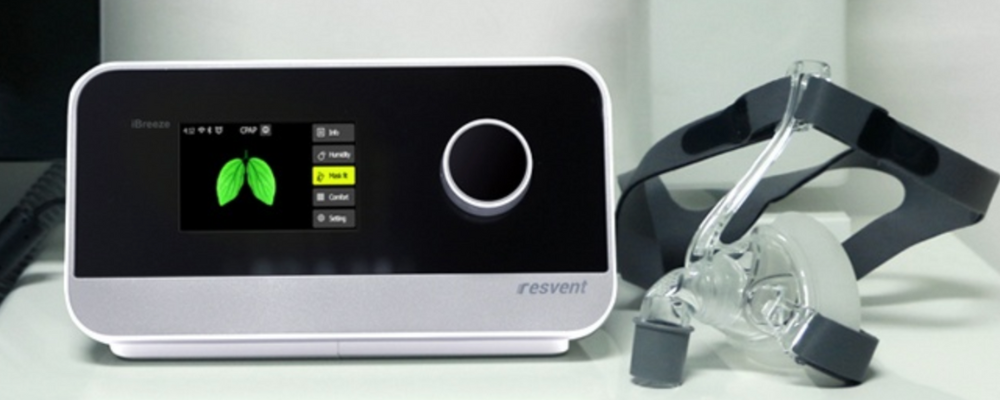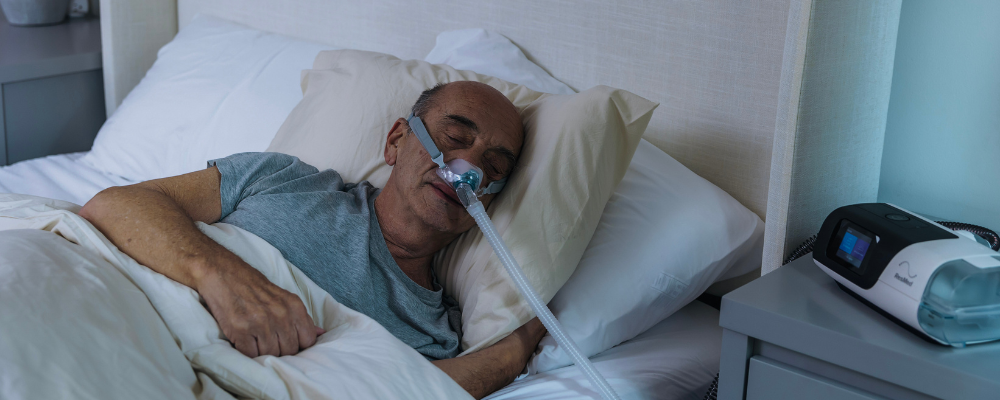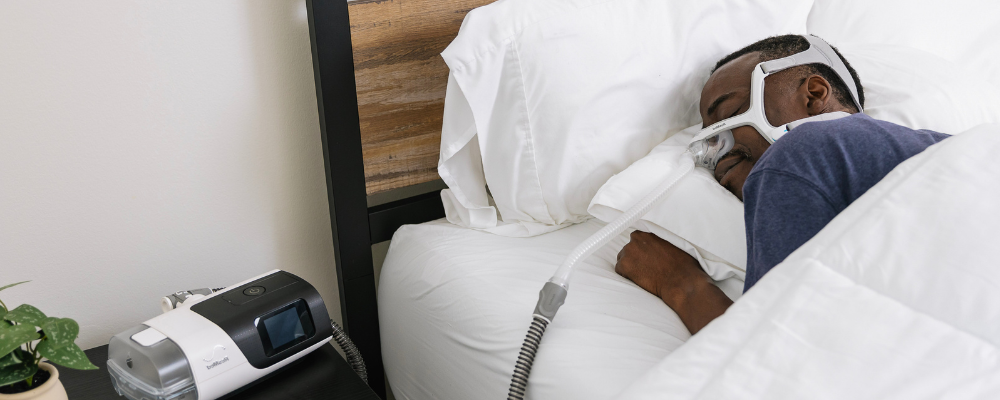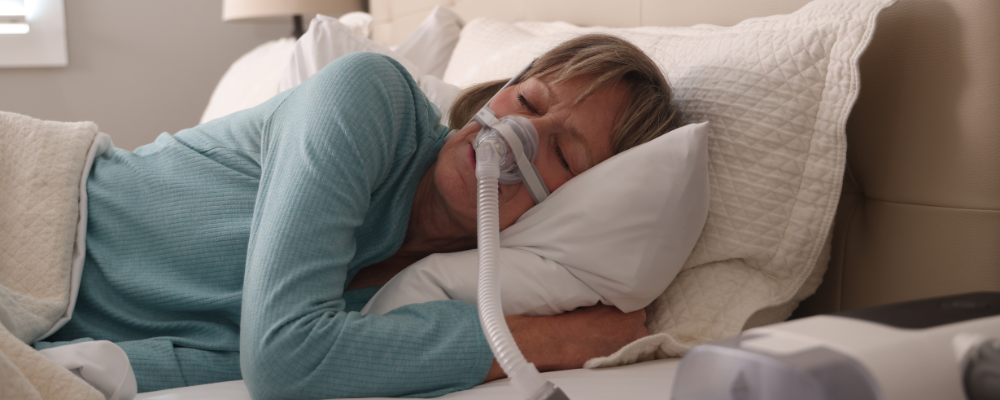Pregnancy brings many changes to your body, and sleep apnea and pregnancy often develop together due to weight gain, hormonal shifts, and airway changes. CPAP therapy during pregnancy is not only safe but represents the gold standard treatment for expecting mothers with obstructive sleep apnea (OSA). Sleep disruption affects both you and your developing baby, making proper treatment essential for a healthy pregnancy. Understanding how sleep apnea and pregnancy interact helps you make informed decisions about your care and your baby's well-being.
What Causes Obstructive Sleep Apnea During Pregnancy?
Pregnancy-related changes in your body create the perfect conditions for developing or worsening obstructive sleep apnea. Weight gain, hormonal fluctuations, and physical changes to your airway all contribute to breathing interruptions during sleep.
Dr. Jessica Madden, a board-certified pediatrician, neonatologist, and Medical Director of our parent company’s Mom & Baby division, explains that "Women who are obese when they get pregnant are at the highest risk of having sleep apnea during pregnancy (15-20% of obese women have sleep apnea). Pregnant women are at a higher risk of sleep apnea during pregnancy due to weight gain and also changes in the oropharyngeal region during pregnancy that lead to narrowing of the airway."
The risk factors extend beyond weight, however. Pregnancy hormones cause blood vessels to become inflamed, leading to upper airway tissue swelling that narrows your breathing passages. As your uterus grows, it puts pressure on surrounding organs, including your lungs, which can reduce lung function and make breathing more difficult.
Common symptoms of sleep apnea during pregnancy include loud snoring, daytime sleepiness, morning headaches, gasping or choking at night, and gestational hypertension. These symptoms may overlap with normal pregnancy discomforts, making it important to discuss any breathing concerns with your healthcare provider. Early identification and treatment can prevent serious complications for both you and your baby.
Can Sleep Apnea Hurt My Unborn Baby?
Yes, untreated sleep apnea poses serious risks to both maternal and fetal health, including life-threatening complications. The chronic oxygen deprivation and inflammatory processes associated with sleep apnea can harm both you and your developing baby.
"Pregnant women with sleep apnea are at an increased risk of cardiomyopathy (enlarged heart), congestive heart failure, pulmonary embolism (blood clot in the lungs), and death," Dr. Madden warns. For your baby, untreated maternal sleep apnea increases risks of low birth weight, preterm delivery, intrauterine growth restriction, and lower Apgar scores at birth.
Sleep apnea and pregnancy can result in many complications, including:
- Hypertensive Disorders & Pre-Eclampsia
- Gestational Diabetes
- Preterm Delivery
- Intrauterine Growth Restriction (IUGR)
- Increased Risk of Needing Cesarean Section (or C-Section)
- Lower Apgar Scores in Newborns
The strongest evidence links sleep apnea and pregnancy complications to hypertensive disorders and preeclampsia. Research shows that expecting mothers with sleep apnea face significantly higher risks of gestational diabetes, increased need for cesarean section, and fetal growth anomalies. Recent studies indicate that CPAP therapy can reduce gestational hypertension risk by 35% and preeclampsia risk by 30%, making treatment essential for protecting both maternal and fetal health.
Is A CPAP Machine Safe During Pregnancy?
Yes, CPAP therapy is completely safe during pregnancy and represents the treatment of choice for expecting mothers with sleep apnea. Dr. Madden confirms that "CPAP is a safe treatment for sleep apnea during pregnancy, and [a CPAP machine] is actually the treatment of choice for sleep apnea during pregnancy."
To receive CPAP therapy, you'll need a sleep study diagnosis first. Your healthcare provider can arrange either an in-lab polysomnography study or home sleep testing. Both options are safe during pregnancy and monitor your breathing patterns, oxygen levels, and sleep quality to determine if treatment is necessary.
CPAP therapy works by delivering continuous positive airway pressure through a mask, keeping your airways open throughout the night. This noninvasive treatment prevents the breathing interruptions that characterize sleep apnea, maintaining stable oxygen levels for both you and your baby. Studies consistently show no adverse effects from CPAP use during pregnancy, and importantly, there is no evidence that sleep apnea or CPAP therapy causes miscarriage. The mechanical nature of CPAP treatment means no medications enter your system, making it an ideal solution for expecting mothers.
Does Sleep Apnea Go Away After Pregnancy?
Sleep apnea may improve after delivery, but approximately half of women with gestational sleep apnea continue to have symptoms postpartum. Continue your CPAP treatment until you and your doctor decide together on next steps after your baby arrives.
Postpartum resolution of sleep apnea depends on two main factors: weight loss and hormonal changes. As you lose pregnancy weight and your progesterone levels normalize, your sleep apnea symptoms may decrease or disappear entirely. However, the physical and hormonal changes of pregnancy can sometimes trigger persistent sleep apnea that requires ongoing treatment.


Sleep becomes even more challenging after your baby arrives due to frequent nighttime feedings and care needs. Maintaining good sleep quality through continued CPAP use, if needed, helps you recover from childbirth and care for your newborn. Your healthcare provider will reassess your sleep apnea symptoms during postpartum visits and may recommend follow-up sleep testing to determine whether ongoing treatment is necessary.
How Aeroflow Sleep Can Help Moms-to-Be
Aeroflow Sleep simplifies the process of getting CPAP supplies, handling insurance verification, paperwork, and equipment delivery so you can focus on your health and your growing baby.
We work with most primary insurance providers and are accredited by Medicare and Medicaid. Our simple online qualification form takes just 5-7 minutes to complete, and we'll automatically check your insurance coverage for CPAP supplies including machines, masks, and accessories. You'll need a sleep study to qualify, but once approved, most patients pay little or nothing out of pocket.
Beyond equipment delivery, you'll receive personalized support throughout your pregnancy and beyond. Our dedicated sleep specialists provide one-on-one clinical support, either in-home or via telehealth, ensuring your CPAP therapy works effectively as your body changes during pregnancy. Your user-friendly online portal includes a tailored replacement schedule, important updates, and educational resources to support your treatment success. Contact Aeroflow Sleep today to learn more!
References
Dominguez JE, Street L, Louis J. Management of Obstructive Sleep Apnea in Pregnancy. Obstet Gynecol Clin North Am. 2018 Jun;45(2):233-247. doi: 10.1016/j.ogc.2018.01.001. PMID: 29747728; PMCID: PMC5995135.
Raynes-Greenow CH, Hadfield RM, Cistulli PA, Bowen J, Allen H, Roberts CL. Sleep apnea in early childhood associated with preterm birth but not small for gestational age: a population-based record linkage study. Sleep. 2012 Nov 1;35(11):1475-80. doi: 10.5665/sleep.2192. PMID: 23115396; PMCID: PMC3466794.
Lungeanu-Juravle L, Patrascu N, Deleanu OC, Cinteza M. The Role of Obstructive Sleep Apnea in Developing Gestational Hypertension and Preeclampsia. Maedica (Bucur). 2016 Dec;11(4):330-333. PMID: 28828052; PMCID: PMC5543527.
Street LM, Aschenbrenner CA, Houle TT, Pinyan CW, Eisenach JC. Gestational Obstructive Sleep Apnea: Biomarker Screening Models and Lack of Postpartum Resolution. J Clin Sleep Med. 2018 Apr 15;14(4):549-555. doi: 10.5664/jcsm.7042. PMID: 29609706; PMCID: PMC5886432.



